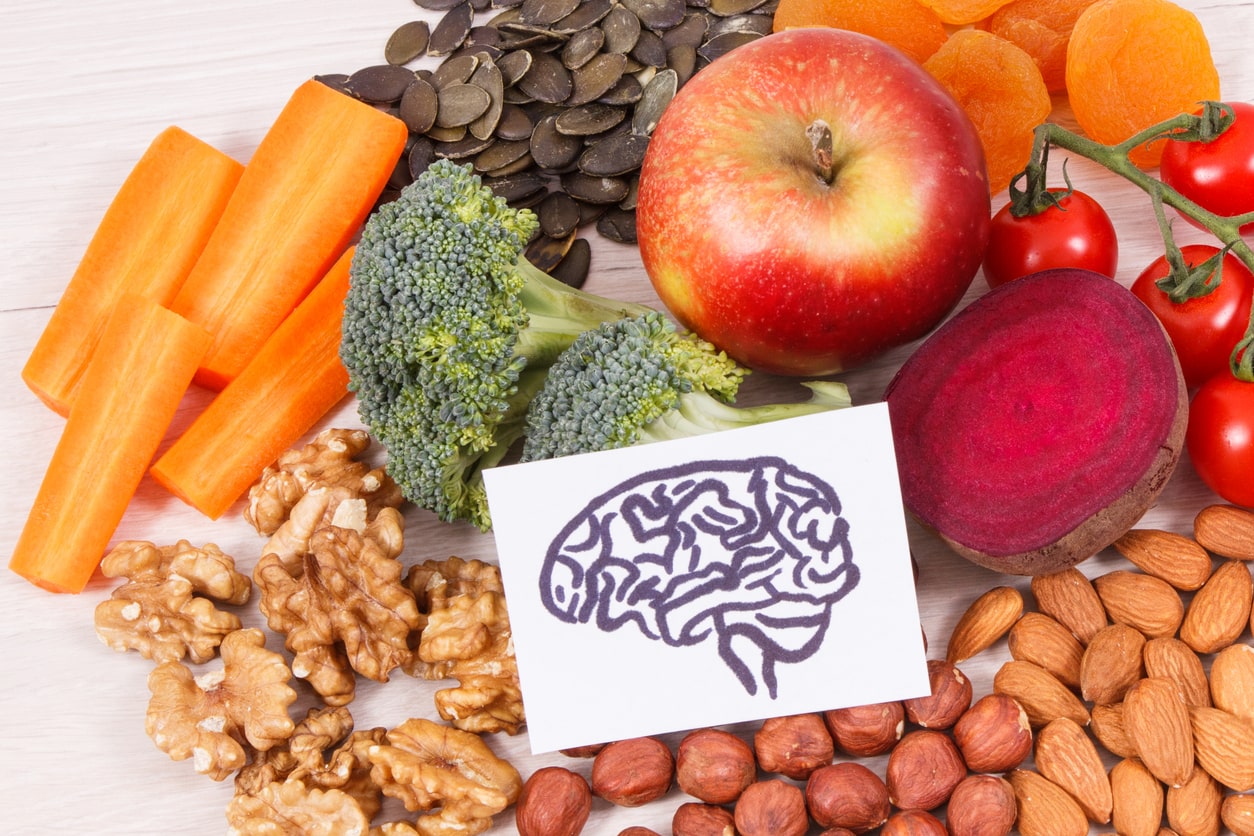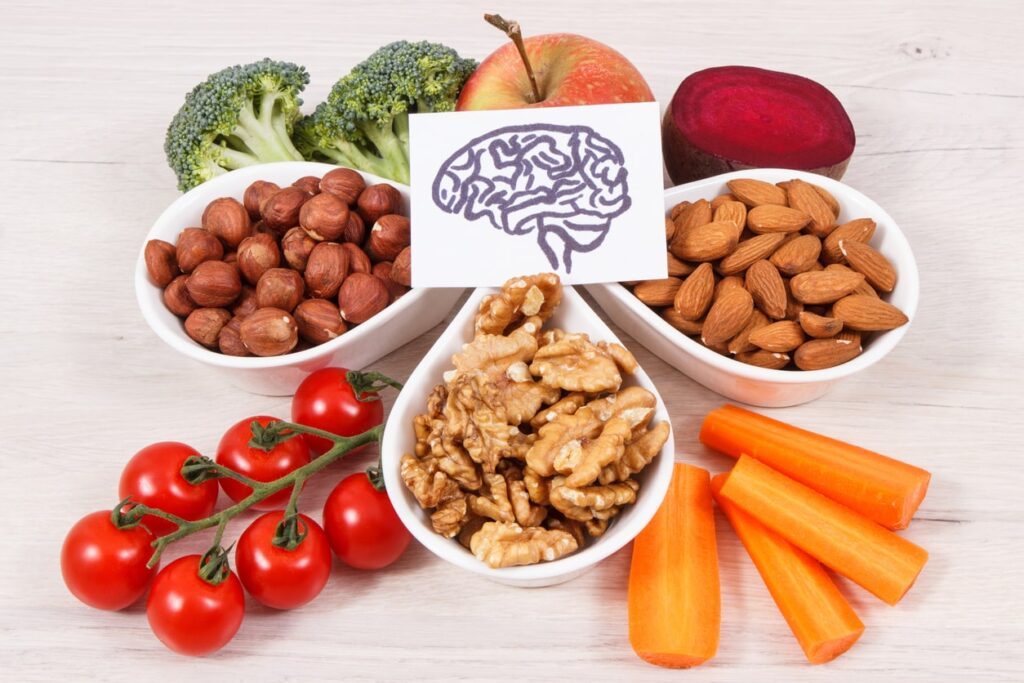Now Reading: Foods That Boost Brain Health During Recovery
-
01
Foods That Boost Brain Health During Recovery
Foods That Boost Brain Health During Recovery

Introduction
Recovery, whether from addiction, trauma, or illness, is a physically and mentally demanding journey. The brain, in particular, undergoes significant changes during healing, requiring proper nutrition to restore function, improve memory, and support emotional well-being. Eating the right foods can help boost brain health, enhance cognitive function, and stabilize mood, making recovery smoother and more effective.
This article explores the best foods that boost brain health during recovery, their benefits, and how they contribute to overall mental well-being.
Why Nutrition Matters in Brain Recovery
The brain is one of the most energy-demanding organs in the body, consuming about 20% of daily calories. During recovery, the brain requires even more nutrients to repair damage, restore balance, and support emotional stability. The right foods can:
- Reduce inflammation and oxidative stress that contribute to cognitive decline.
- Enhance neurotransmitter production, improving mood and reducing anxiety.
- Support neurogenesis, the process of creating new brain cells.
- Improve focus, memory, and overall mental clarity.
Top Foods That Boost Brain Health During Recovery
1. Fatty Fish: Omega-3 Powerhouse
Fatty fish like salmon, mackerel, sardines, and trout are rich in omega-3 fatty acids, which are essential for brain function. Omega-3s reduce inflammation, improve communication between brain cells, and support emotional stability.
How it helps:
- Enhances memory and cognitive function.
- Reduces anxiety and depression symptoms.
- Supports dopamine regulation, which is crucial for addiction recovery.
How to include: Eat two servings per week of grilled or baked fatty fish.
2. Leafy Greens: Brain-Protective Antioxidants
Vegetables like spinach, kale, and Swiss chard are packed with antioxidants, vitamin K, and folate, all essential for brain health.
How it helps:
- Slows cognitive decline and protects against neurodegeneration.
- Enhances mental clarity and focus.
- Supports healthy blood flow to the brain.
How to include: Add leafy greens to smoothies, salads, or omelets.
3. Berries: Natural Brain Boosters
Blueberries, strawberries, and blackberries are loaded with flavonoids and antioxidants, which fight oxidative stress and enhance brain plasticity.
How it helps:
- Improves memory and learning abilities.
- Reduces inflammation and stress hormones.
- Protects against mental fatigue.
How to include: Eat a handful of berries daily in yogurt, oatmeal, or smoothies.

4. Nuts and Seeds: Essential Brain Fuel
Almonds, walnuts, flaxseeds, and chia seeds provide healthy fats, vitamin E, and magnesium, all crucial for brain function.
How it helps:
- Protects against brain aging and cognitive decline.
- Improves neurotransmitter function.
- Stabilizes mood and reduces anxiety.
How to include: Snack on a handful of nuts or sprinkle seeds on salads and smoothies.
5. Avocados: Healthy Fats for Cognitive Function
Avocados are rich in monounsaturated fats, which help improve blood flow to the brain and support memory.
How it helps:
- Enhances mental clarity and cognitive function.
- Reduces stress-related inflammation.
- Provides essential B vitamins that help regulate mood.
How to include: Add avocado to salads, toast, or smoothies.
6. Whole Grains: Steady Energy for Brain Performance
Whole grains like quinoa, oats, and brown rice provide a steady release of glucose, keeping the brain fueled throughout the day.
How it helps:
- Enhances focus and concentration.
- Prevents mental fatigue and brain fog.
- Supports gut health, which is linked to mental well-being.
How to include: Choose whole grain bread, pasta, or oatmeal instead of refined grains.
7. Dark Chocolate: A Sweet Brain Booster
Dark chocolate (at least 70% cocoa) contains flavonoids, caffeine, and antioxidants that boost mental performance.
How it helps:
- Improves blood flow to the brain.
- Enhances mood and reduces stress.
- Provides a natural energy boost without crashes.
How to include: Eat a small square of dark chocolate as a snack.
8. Eggs: Essential for Memory and Learning
Eggs are an excellent source of choline, a nutrient that helps with brain cell communication and memory retention.
How it helps:
- Supports learning and cognitive function.
- Enhances mood regulation through neurotransmitter production.
- Reduces brain fog and mental fatigue.
How to include: Have eggs for breakfast or in salads.
9. Turmeric: The Anti-Inflammatory Brain Protector
Turmeric contains curcumin, a compound known for its powerful anti-inflammatory and antioxidant properties.
How it helps:
- Enhances memory and cognitive function.
- Boosts serotonin and dopamine levels for emotional stability.
- Reduces brain inflammation caused by stress and addiction.
How to include: Add turmeric to soups, curries, or warm milk.
10. Green Tea: Mental Clarity and Relaxation
Green tea is packed with L-theanine, antioxidants, and caffeine, which promote focus and relaxation.
How it helps:
- Enhances alertness and concentration.
- Reduces stress and anxiety.
- Protects against cognitive decline.
How to include: Drink one or two cups daily for a brain boost.
How to Create a Brain-Boosting Diet
To maximize brain health during recovery:
- Eat a variety of nutrient-rich foods daily.
- Stay hydrated to improve cognitive function.
- Avoid processed foods and excess sugar, which can cause energy crashes and mood swings.
- Practice mindful eating to support mental well-being.
Conclusion
Nutrition plays a key role in brain health and recovery. By incorporating foods rich in omega-3s, antioxidants, vitamins, and healthy fats, you can support cognitive function, enhance emotional stability, and promote long-term well-being.
Whether recovering from addiction, stress, or mental health challenges, a brain-boosting diet helps restore mental clarity, improve memory, and enhance overall wellness. Start making small, consistent dietary changes today for a healthier brain and a stronger recovery journey.

Jen Sheldon is a seasoned writer with a passion for fitness, health, wellness, and addiction treatment. With years of experience crafting insightful and research-backed content, she helps readers navigate their journey toward better well-being. When she’s not writing, you’ll find her exploring new workout routines or diving into the latest health trends.


























